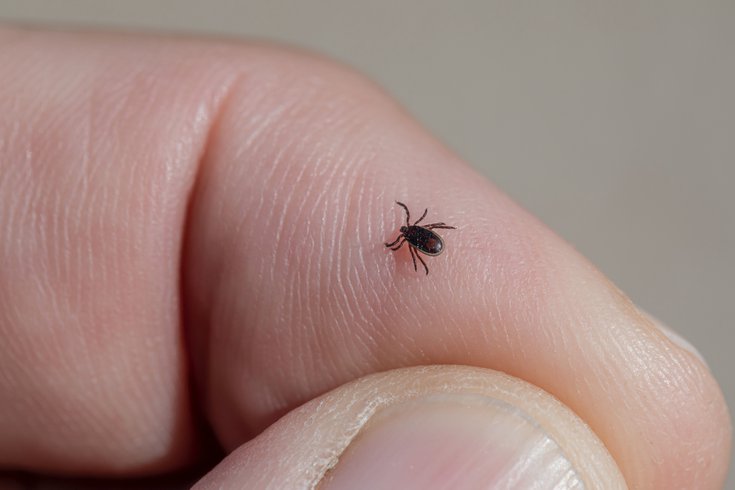
July 27, 2023
 Erik Karits/Unsplash
Erik Karits/Unsplash
Lyme disease is a concern each summer, but a different tick-borne condition is drawing concern. The CDC released two reports on alpha-gal syndrome, a red meat allergy associated with the lone star tick. The stock image above shows a tick whose species was not specified.
A tick-borne meat allergy has been steadily spreading in the United States, according to new data from the Centers for Disease Control and Prevention.
Alpha-gal syndrome is a sensitivity to a sugar found in red meat and animal products like cow's milk. It is primarily associated with the lone star tick, an insect that has historically resided in the southeastern U.S. but has been moving north and west in recent years. Once people develop AGS, they may experience hives, nausea, dizziness, difficulty breathing or swelling. In some cases, it is life-threatening.
Two new CDC studies shed further light on the condition — and suggest it's growing increasingly common. One study found that there were more than 90,000 new AGS cases in the U.S. between 2017 and 2021. By contrast about 34,000 cases were identified between 2010 and 2018.
The cases mainly were concentrated in the midwestern, southern and mid-Atlantic regions of the U.S. Women were more likely to be tested for AGS, but men were nearly twice as likely to test positive for it. The average age of the people diagnosed with AGS was 48.
The "prevalence of this condition is largely unknown," and the true number of cases since 2010 could be up to 450,000, CDC researchers wrote. Barriers to testing are one issue, but perhaps the biggest is the lack of knowledge in the medical community. This point was borne out in the second study, which found that 42% of health care providers surveyed had never heard of AGS, and only one-third knew it came from a tick bite. Nearly half did not know how to test for the syndrome.
Lone star ticks, which are named for the white spot on females' backs, were first observed in Pennsylvania in 2017. They do not pass AGS onto humans through an infection, but rather by transferring alpha-gal sugars through their saliva when they bite.
Because these sugars do not naturally occur in people, the human body perceives them as foreign substances and mounts an immune response. This can be especially dangerous when a person with a lone star tick bite later consumes animal products with more of these sugars. The immune system often triggers a more severe response, usually 2-6 hours after ingestion of red meat, milk products or gelatin-coated medication. (Poultry, seafood and eggs do not contain alpha-gal.)
While symptoms vary by person, some can go into anaphylactic shock.
There is no cure for AGS, but not everyone who is bitten by a lone star tick develops the sensitivity, or has consistent reactions. The CDC has called for increased monitoring of the syndrome, and better education among medical providers, to understand the spread of this tick-borne allergy.
Follow Kristin & PhillyVoice on Twitter: @kristin_hunt
| @thePhillyVoice
Like us on Facebook: PhillyVoice
Have a news tip? Let us know.